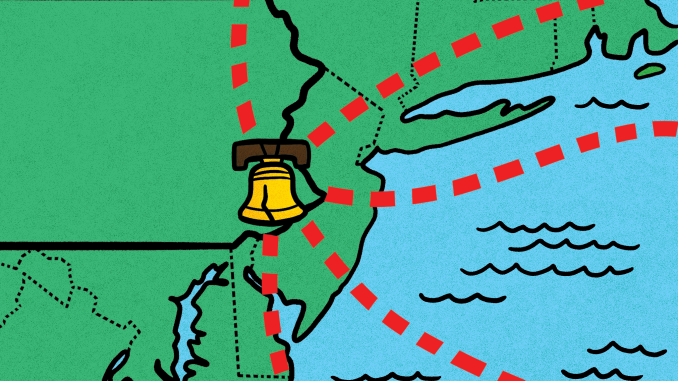
Moving from Madison, Wisconsin, to Berwyn, Pennsylvania when I was 12 years old was hard enough, because I had to leave all my friends and extended family behind. To make matters worse, I didn’t see anyone that looked like me in Berwyn, which made me feel out of place and alone.
In Madison, I saw other people of color everywhere. I am Egyptian, something I didn’t appreciate as much as I should have. In Berwyn, I was surrounded by white people who didn’t understand my culture and were often racist towards me. I was called a terrorist, told to ‘go back to ISIS’ and asked if Osama Bin Laden was my uncle.
Students at school avoided me. None of the other students made an effort to get to know me but they still felt comfortable asking me intrusive questions about my religion, my food, my family or stereotypes about Egypt.
During lunch, the other kids would scrunch their noses when they saw or smelled my lunch from home. Dishes like fiteer and stuffed grape leaves brought on incessant questioning and judgment. Eventually, I stopped bringing lunch from home.
On Halloween, a week before the 2016 presidential election, politics came up in conversation and one of the boys sitting at the lunch table next to me said, “all Muslims are ISIS, it’s a known fact.” The tears came flooding. I spent my favorite holiday in the bathroom at school.
I became easily frustrated with myself and, at some points, my family for bringing me to Berwyn. I was isolated and unseen by my peers. It was hard for me to make friends when I didn’t quite relate to anything they would talk about or did for fun.
It wasn’t until eighth grade in 2016, when my parents put my younger sister and me into Sunday school at the local mosque, that we were exposed to the local Arab community.
But even the transition into Sunday school was difficult. It seemed like just another thing I did that set me apart from my peers at school. I refused to make friends with the other kids in Sunday school.
My parents didn’t seem to understand that Sunday school wasn’t helping. I felt torn between the typical all-American image I projected at school and the person who knew the rules of prayer, knew a second language, and dressed modestly.
I felt like an outsider to both groups, not quite recognized or wanted by anyone.
I kept trying desperately to fit in, changing everything about myself, wiping away as many signs and indications that I wasn’t like everyone else until I reached high school.
My high school had more people of color than middle school. Suddenly, I was meeting people who understood what it’s like to go through ignorance and racism, the overwhelming feeling of needing to change everything about us to be accepted, the shame and anger we felt towards our home country and cultures.
My best friends were the people who allowed me to be myself unapologetically. It was difficult at first because I’d become used to downplaying my heritage and culture.
Before, I would avoid explaining Ramadan for fear of losing friends, but my new friends were intrigued. They even joined me in fasting once or twice.
I no longer wanted to hide who I was. I would get excited to share my customs, excited to bring them to my house and show them the decorations brought from Egypt.
I was so eager to be like everyone else and throw away my culture and heritage that I lost myself. Throughout the years, I have become more sure of myself, more confident and appreciative of my identity and my culture and proud of my Egyptian heritage.
I look back and wonder why I was so convinced that being different was a bad thing, and why I thought that fitting in and being like the white girls in my school would make everything easier when it’s not who I was.
I owe a lot to my mother, who was so adamant about keeping my younger sisters and I in touch with our culture, exposing us to the beauty of Egypt and everything it has to offer. I know I am very lucky to have been given a chance to find myself.
I am very proud and comfortable, now, in my identity. My Egyptian heritage and identity isn’t something I shy away from, but rather something that I treasure.



Be the first to comment